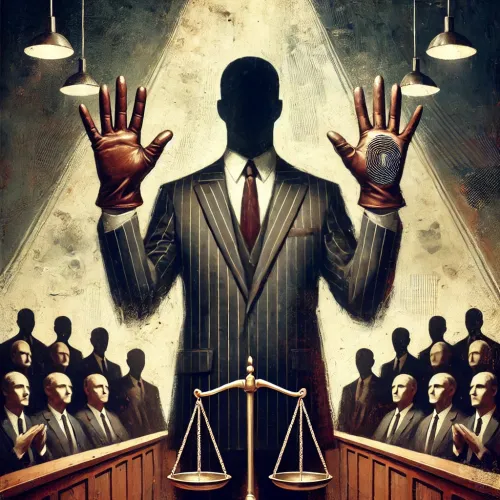The confidentiality of jury deliberations is a fundamental principle in the legal system, designed to protect the integrity of the decision-making process and ensure that verdicts are rendered based on impartial and uninfluenced discussions among jurors. This principle is particularly significant in the context of jury nullification, where jurors may choose to acquit a defendant despite evidence of guilt, based on their belief that the law is unjust or improperly applied.
Historical Context and Legal Foundations
The tradition of confidential jury deliberations dates back centuries, rooted in the belief that privacy is essential for jurors to deliberate without external pressures. In the United States, this principle is upheld by rules such as Federal Rule of Evidence 606(b), which generally prohibits inquiry into the validity of a verdict based on jurors' statements made during deliberations. This rule fosters open discussion in the jury room and protects jurors from harassment by disappointed litigants, preventing courts from being drawn into an unending cycle of undoing verdicts by placing jurors on trial.
Significance in Jury Nullification
Confidentiality is particularly crucial in cases of jury nullification. When jurors believe that applying the law would result in an unjust outcome, they may choose to acquit the defendant, effectively nullifying the law in that specific case. This act requires jurors to exercise their moral judgment, which can be controversial and subject to criticism. The privacy of deliberations allows jurors to make such decisions without fear of retribution or public scrutiny, thereby enabling them to act according to their conscience.
Legal Protections and Limitations
While the confidentiality of jury deliberations is a protected principle, there are exceptions, particularly when external influences or misconduct are alleged. For instance, in the case of United States v. Thomas (1997), the Second Circuit Court of Appeals ruled that a juror could not be removed from a jury on the ground that the juror was acting in purposeful disregard of the court's instructions on the law, when the record evidence raised a possibility that the juror was simply unpersuaded by the government's case against the defendants. This case highlighted the importance of maintaining the secrecy of jury deliberations, even when there is suspicion of jury nullification.
However, in cases where there is clear evidence that a juror is refusing to apply the law as instructed, courts have intervened. In United States v. Thomas, the court held that while jurors have the power to nullify, they do not have the right to engage in deliberate misconduct by refusing to apply the law. The court emphasized that dismissal of a juror should only occur when there is proof beyond all doubt that the juror is engaging in nullification.
Ethical Considerations
The confidentiality of deliberations also raises ethical considerations. While it protects jurors and promotes honest discourse, it can also shield improper behavior, such as bias or prejudice influencing a verdict. The legal system must balance the need for secrecy with mechanisms to address potential misconduct, ensuring that the principle of confidentiality does not undermine justice.
Impact on Juror Behavior
The assurance of confidentiality can influence juror behavior positively by encouraging open and honest discussions. Jurors are more likely to express their true opinions and consider different perspectives when they know their deliberations are private. This openness is essential for thorough deliberation and reaching a fair verdict.
Challenges and Criticisms
Despite its importance, the principle of confidentiality faces challenges. In high-profile cases, there may be attempts to breach this confidentiality through media inquiries or public interest. Additionally, the rise of digital communication poses new risks to the secrecy of deliberations, as jurors may inadvertently or deliberately share information outside the jury room.
Confidentiality of jury deliberations is a cornerstone of the judicial process, ensuring that jurors can deliberate freely and make decisions based on impartial judgment. This principle is especially significant in the context of jury nullification, where jurors may need to make decisions that align with their moral convictions. Maintaining the privacy of deliberations upholds the integrity of the jury system, fosters honest discourse, and protects jurors from external pressures, thereby reinforcing the role of the jury as an independent arbiter of justice.



